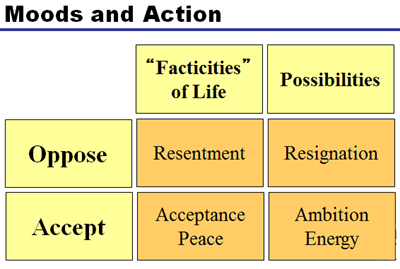You can’t always get what you want
But if you try sometimes well, you just might find…
You get what you need!
— song lyrics by Mick Jagger and Keith Richards of The Rolling Stones
 One of the lessons I learned over years of coaching is that the most successful entrepreneurs out there know how to ask for help from the right sources. In fact, I would even venture to say that the ability to effectively ask for help is the most critical success factor among entrepreneurs. Asking for help can have the same effect on our personal lives, opening us up to finding and leveraging opportunities for success.
One of the lessons I learned over years of coaching is that the most successful entrepreneurs out there know how to ask for help from the right sources. In fact, I would even venture to say that the ability to effectively ask for help is the most critical success factor among entrepreneurs. Asking for help can have the same effect on our personal lives, opening us up to finding and leveraging opportunities for success.
It sounds so simple, doesn’t it? To get The Answer from someone else is as simple as raising your hand, right? Not always. Asking for – and getting – the right kind of help is a 5-step process.
Step 1: Surrender to the fact that there is more than one way to solve a problem.
Before you can ask for help, you must understand that you are always at choice about how to solve the problems that stand between you and what you hope to create in your life. When you recognize that the path you will ultimately choose is but one among many possible courses of action, it liberates and energizes your thoughts about the situation. Hope grows from this seed of possibility. Contrast that with a limiting paradigm that dictates there is only one correct choice and it is the one and only path forward. It’s a paralyzing, depressing, and hopeless mindset, one that stifles creative thinking and makes it nearly impossible to solve the problem.
Step 2: Recognize the importance of moods and emotions in your ability to take action.
Believe it or not, moods and emotions are predispositions for action. Think about it. If you are in a dark, stormy mood or depressed, you may resent the situation that you’re in and resign yourself to the fact that you cannot have what you want. “It’s hopeless to try, so I’ll just give up”, you’ll tell yourself when your spirits are low.
On the other hand, if you choose to approach the situation with a more optimistic mindset, you will find yourself capable of accepting the facts of the situation and thinking about possible ways to overcome those obstacles.
Opposition or Acceptance: the choice is yours, and the possibilities are in your hands.

Step 3: Assess your ability to act on the possibilities that you have identified.
Now that your mindset is optimistic and you have come up with a list of possibilities to solve your problem, look over your list and prioritize it based on what you believe would have the greatest chance of success. Take a closer look at your high potential ideas and ask yourself a simple question: “Can I act on these ideas alone, or do I need to ask for help?”
Step 4: Identify your potential helpers.
OK, so you’ve figured out that you need help to act on your ideas. But who should you ask? Should you rely on your spouse, your children, or your best friend? Not necessarily. The best person to ask for help will depend on the type of help you need. How do you find the best help for your situation? Ask people you know for references. Explain the situation that you are in and ask them to suggest some resources that could help you. The trick is to not to simply inform or complain about the situation, but to actually ask for their help in solving it.
Ask the right person for help directly and prepare for any outcome.
After you have the names of the people or organizations that can help you, you are ready to ask for help. It sounds simple enough, but it’s amazing how often we stop short of actually asking and fall into a pattern of complaining or informing without converting it into a request for help. A complaint is generally a request that we didn’t have the courage to make of a person who has the ability to listen and the authority and power to take action.
Why do we complain instead of ask? Often, we feel fear about asking. We are afraid of how the person will respond to the request. The person responding to the request has four options:
1) Accept the request.
2) Counter-offer.
3) Commit to commit (“I can’t do that now, but let me check on a few things and get back to you on Tuesday.”)
4) Decline.
It is the fourth option, “No”, that we are most afraid of hearing when we ask for help. But think about it. Which would you rather have, a “no” you can count on or a “yes” that you can’t count on? People are afraid of “no” until they understand that “no” can be good because it allows them to go forward and find a different solution.
Putting it all together.
When we are faced with adversity, we might choose to sit and be stuck, but the truth is that if we can accept the truth of what happened, we might be able to reach out, ask for help, and move through the situation. In fact, the faster you can accept what the situation is and ask for help if you’re stuck, the more possibilities open up in your life and your sense of happiness, joy, and serenity becomes available to you.
Now it’s your turn.
What are the possibilities for moving past the problems that stand between you and what you hope to create?
Are you maintaining a mindset of opposition or acceptance?
What are the stuck areas of your life that you could overcome if you had the right kind of help?
What is preventing you from getting the help you need to succeed?
What benefits could you gain by asking for help, even if the answer is “no”?

